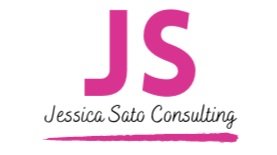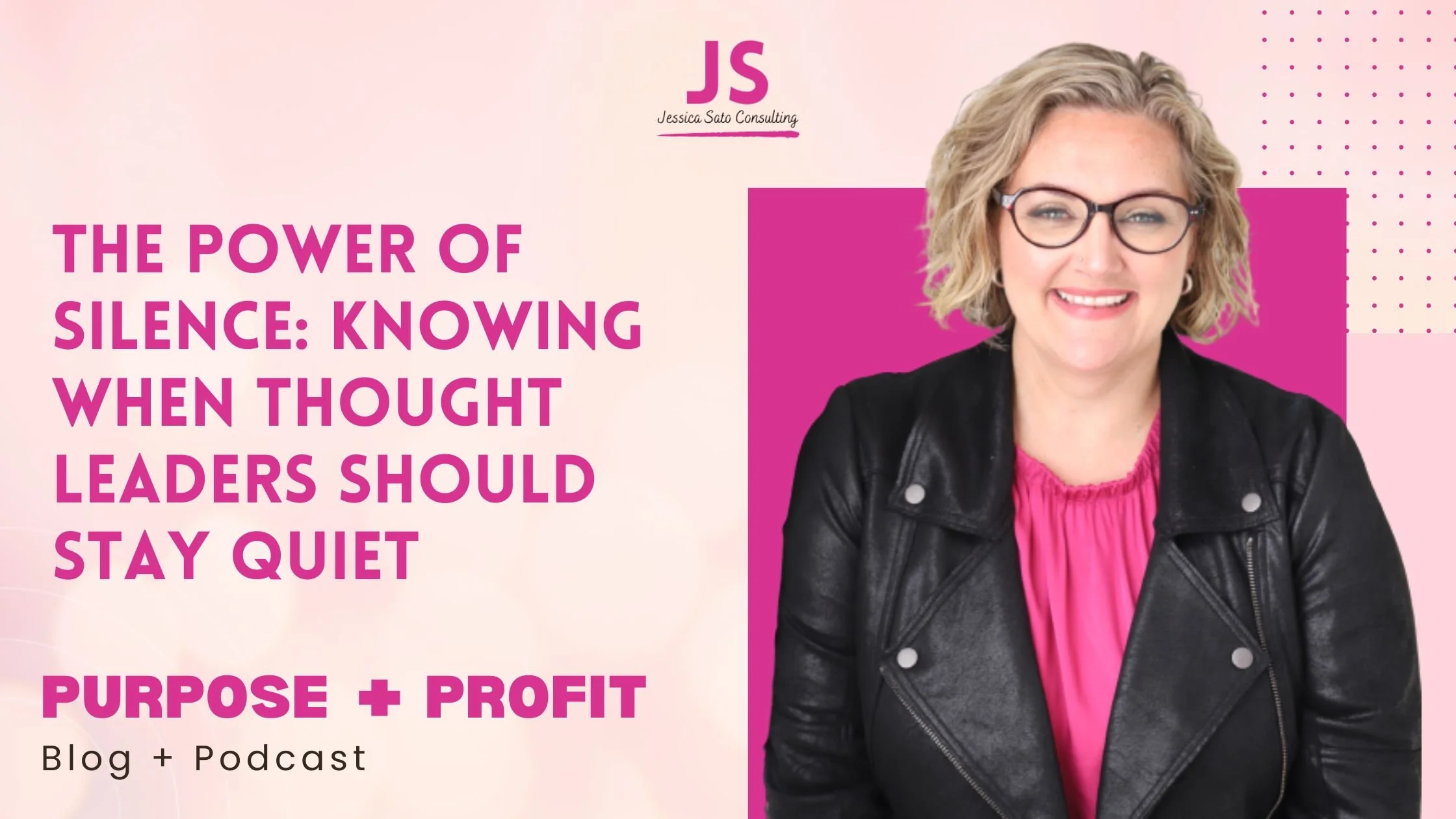The Power of Silence: Knowing When Thought Leaders Should Stay Quiet
Listen to this episode on the Purpose + Profit Podcast on Apple Podcasts, Spotify, or the podcast player of your choice
In last week’s blog, we talked about the importance of using your voice and speaking engagements to create visibility and establish your presence as a thought leader. But today, I want to talk about something that’s just as powerful: being silent. For high-achieving, professional female entrepreneurs, especially those in the social change and impact space, knowing when to speak - and when to stay silent - is crucial.
The BOLT™️ (Bold, Original, Loud, and Tenacious) method emphasizes being clear and impactful with your messaging, and Loudness can often be mistaken for constantly speaking, But sometimes the most profound statement is the one left unsaid.
The Importance of Listening and Learning
As a thought leader, there’s often an expectation to have all the answers, to speak up on all the issues, regardless of them being relevant to your field, but some of the most valuable insights come when we pause and listen. Whether it’s hearing from your team, clients, or the broader community, silence can be a tool for gathering information and understanding different perspectives. It’s not about withholding your thoughts but rather creating a space to absorb and reflect, so that when - or if - you speak, you can do some from a place of intellectual integrity.
Creating Space for Others’ Voices
Silence can also be an invitation. By stepping back, you allow others who have a deeper vested interest, a real stake in the discussion, or who are closer to the issue the opportunity to share their ideas and viewpoints. This is especially important in a collaborative environment where diverse thoughts can lead to more innovative solutions. It’s not always about being the loudest voice in the room.
Reflecting and Refining Your Message
Before jumping in with an immediate response, a moment of silence can provide the necessary pause to think through your words. I know this often feels uncomfortable. I’ve been in countless spaces where I’ve felt like I had to say something because others expected it. I rarely feel like this is ideal, and I would much rather we push the pause button and give ourselves the space to reflect and align our message, rather than have knee-jerk reactions that might not serve the great good.
This is a challenging tightrope to walk, and the pressure can be immense. This is where a close inner circle, made up of people that don’t look or think like you, is invaluable.
How Do You Know When to Stay Silent?
This is a question that only you can answer, but I’ve found that choosing silence, at least initially, during controversial discussions has served me well. When you take the time to listen and understand all sides before voicing an opinion, you can prevent misunderstandings and missteps. Hear me when I say it’s not about avoiding difficult topics but about approaching them with a well-considered perspective.
Similarly, in emotionally charged situations, silence can be a way to manage and process emotions before speaking. Thomas Jefferson once said, "When angry, count to ten before you speak; if very angry, count to one hundred." It’s the pause that allows for clarity and ensures that your response is measured and thoughtful.
And when you don’t have all the answers, acknowledging this through silence can actually build credibility. It shows a commitment to finding the right solution rather than just filling the space with words.
Balancing Silence and Voice
All of this silence, of course, has to be balanced against using your voice. As a thought leader, your voice is a powerful tool for creating change and leading the conversation in your industry. The key is knowing when to amplify your message and when to let silence speak for you, and if we’re being real, that’s not always easy to do.
Silence isn’t about not having a voice; it’s about knowing when and how to use it effectively. It’s a strategic choice that can amplify your impact, build deeper connections, and ultimately, lead to more meaningful change. I hope the next time you’re faced with a decision to speak or stay quiet, you’ll consider the role silence can and should play. As cheesy as it may sound, it might just be the most eloquent and thoughtful statement you can make.



